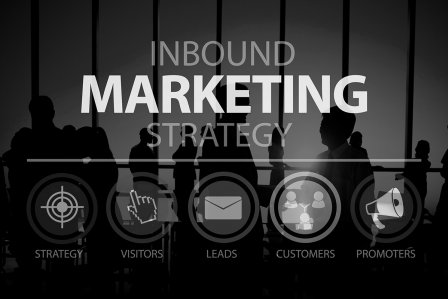
Buyer Persona in Content Marketing: Who am I addressing?
An essential step in any content marketing strategy is knowing who you are targeting and precisely defining the target audience you want to reach. This is essential to chart your strategy and formulate your message; it will also provide you with the basis for choosing distribution channels and even the format, style, tone and theme of your content.
Difference between target audience and buyer persona
The target audience is defined as a group of people who want or need our product or service. Companies do not usually have a single target audience, as they often target multiple types of customers.
The buyer persona is an advanced profile, a semi-fictional archetype that represents the ideal customer of the company and their behaviour. It is a fictional character with a complete biography, which helps you to better understand your clients and prospects, to focus your efforts on creating a content marketing strategy oriented to their needs and concerns.
Depending on each sector, companies can have as many buyer personas as types of clients. From one to twenty. At BCM Marketing we recommend starting with one to three buyer personas, the most representative, to focus on creating content for them first. We will develop more later if necessary.
In addition, the buyer persona should be reviewed periodically.
Each buyer persona has particular expectations to which your content must respond specifically. If you know them, your content marketing strategy can focus on creating only the content that your clients and future clients want. That means you are less likely to waste your time and effort on something that will not work.
What a good buyer persona should include to optimise your content marketing
A good buyer persona is based on a mix of real data and speculation based on experience and market research.
To create a buyer persona, we take into account data such as demographic, geographic, social information, objectives and motivations, pain points, needs, problems that he suffers, purchasing or information consumption habits, interests, professional information, etc.
A buyer persona must answer the following questions:
- What is your socio-professional profile? Age? Male or female? Do you live in an urban or rural setting? What is your disposable income? And your hobbies? What is your family situation? What is a normal day like in your life?
- What type of company do you work for? In what sector? What position do you occupy? In which department? What is your schedule?
- What are your goals, your challenges and needs? What problems could they be facing? What are your desires, your goals, your needs? What answers or what help are you looking for? What do you value the most? What objections do you have to our product or service?
- What is your buying behaviour? What criteria do you use to select a supplier? Can they decide on the purchase themselves? If so, how do they make that decision? If not, how can they influence the person taking it?
- What are your means and sources of learning and information? How do they search for new information? What are your favourite contents? What channels do they use to communicate?
How to create your buyer personas
Collecting so much information should be a comprehensive task. To achieve this, there are different strategies:
- Contact the sales and customer service teams. They are the ones who know your clients best, since they are on the front line and they meet and talk daily with your clients, solve their problems and know their pain points.
- Take full advantage of web analytics to figure out how users behave on your website. What products, services and topics interest them the most.
- Do interviews and surveys among your clients and your prospect database to get to know them better.
- Keep an eye on the competition: observe their interactions on social networks, analyse what content they create on their blogs and external media. This can serve both to inspire you and to decide to adopt a different content marketing strategy.
- Analyse your customers' conversations in forums and social networks to get more information about your buyer personas: what content they share, what articles are most popular, what topics are discussed in the forums, what their concerns are, etc.
Drive your buyer personas thanks to inbound marketing
But the buyer persona is only half the equation. In addition to knowing them, you also have to know where they are in the buying cycle: How close are they to buying? Do you know the different options that the market offers? Are they familiar with your brand?
Consumers need different types of content depending on where they are in their buyer's journey they are in at all times, so your inbound marketing strategy must be prepared to feed your buyer persona with content that is useful to them in each of the stages.
What problems do they have? How can you help them to solve them at any given moment?
Awareness phase: In this phase the buyer realises that he has a need or problem. We can access it through advertising, press releases and viral content.
Research phase: The user consumes informative content to find out how they can solve their problem or need. We can help you with educational videos, infographics, blogs, pdf ebooks, podcasts, etc.
Decision phase: The user already knows the available alternatives and is ready to choose. In this phase it is necessary to explain our product or service to ensure that we are at the top of the consumer's mind (top-of-mind awareness). They have to know what are the advantages of our proposal and how we differentiate ourselves from the competition. Customer testimonials, success stories, seminars, etc.
Action phase: In the last phase of the purchase process the consumer has already made a decision, so we will use inbound marketing automation techniques to close the sale of the product: promotions, product testing, offers, etc.
At BCM Marketing we can help you in the creation of your content marketing strategy based on the most suitable buyer personas for your business. Tell us about your case.










